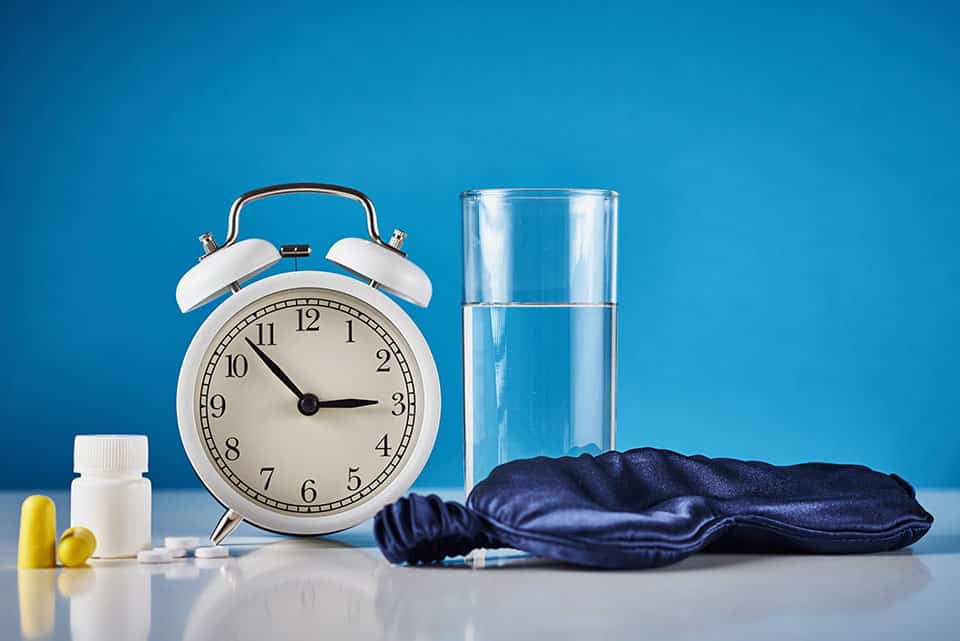How many hours a week do teenagers spend on homework?
The average teenager spends more than 15 hours a week on homework. On a typical school night, they spend over 2 hours on homework. The more stress a teen feels, the more likely they are to spend even more time on homework.
What are the causes of stress for high school students?
Grades/test scores and homework are overwhelmingly the top two causes of stress for all teenagers. The more stress a teen feels, the more likely they are to say grades/test scores and homework cause them stress.
What are the sleep behaviors of teenagers?
More than half of all teenagers do not feel they get enough sleep. More than three-fourths (79%) get 7 hours of sleep or less on a typical school night. Only about one in five teens are getting 8 hours of sleep or more. 43% of teens are going to bed at 11 p.m. or later and about one-third (33%) of these same teens are waking up at 6 a.m. or earlier. The more stressed a teen feels, the more likely they are to get less sleep, go to bed later and wake up earlier. They are also more likely to have trouble going to sleep and staying asleep – more often than their less-stressed peers.
Methodology
The online survey was fielded between 9/27/18 and 9/29/18 with 1,004 teenagers across the United States. Lucid, a global company with industry-leading automated sampling, provided the sample. All respondents were between the ages of 13 and 19 and currently attending high school. About half of the respondents were seniors and three-quarters were 16 years of age or older. A detailed breakdown is below.
| Gender | % |
| Male | 50% |
| Female | 49% |
| Other or prefer not to answer | 1% |
| Age | % |
| 13 | 1% |
| 14 | 10% |
| 15 | 14% |
| 16 | 18% |
| 17 | 19% |
| 18 | 26% |
| 19 | 12% |
| Grade | % |
| 9th (Freshman) | 15% |
| 10th (Sophomore) | 16% |
| 11th (Junior) | 19% |
| 12th (Senior) | 50% |
Reported typical grades in school
| Grades | % |
| A’s | 20% |
| A’s and B’s | 54% |
| B’s | 8% |
| B’s and C’s | 15% |
| C’s | 1% |
| C’s and D’s | 2% |
| D’s | – |
| D’s and F’s | 1% |
Reported effort in grade achievement
| Effort Level | Result |
| No effort at all! 1 |
1% |
| 2 | 15% |
| 3 | 2% |
| 4 | 5% |
| 5 | 4% |
| 6 | 8% |
| 7 | 21% |
| 8 | 25% |
| 9 | 15% |
| As much effort as I possibly can! 10 |
20% |
Reported time spent on homework
| Hours spent each night | Result |
| 1 | 11% |
| 1-1.5 | 26% |
| 2-2.5 | 25% |
| 3-3.5 | 21% |
| 4-4.5 | 11% |
| 5-5.5 | 3% |
| 6+ | 4% |
- Teenagers who report that they spend time on homework in a given week say they spend over 2 hours on homework on a typical school night (mean = 2.38)
- More than one-third (39%) of those teenagers report that they spend 3 hours or more on homework on a typical school night
- Teens who feel more stress (Q14 = 4 or 5) are more likely than less-stressed teens to spend 3 or more hours on homework on a typical school night (48%/25%)
Reported time spent per week on various activities
| 1-3 | 4-7 | 8-12 | 13-19 | 20+ | MEAN | |
| Sports | 27% | 19% | 19% | 12% | 23% | 8.99 |
| Homework | 11% | 19% | 20% | 16% | 34% | 15.78 |
| Clubs/organizations | 35% | 27% | 14% | 9% | 16% | 7.07 |
| Social activities (friends, dating, etc.) | 16% | 21% | 20% | 14% | 29% | 14.26 |
| Job and/or volunteer work | 26% | 19% | 15% | 13% | 27% | 9.13 |
| Electronics (gaming, watching TV, social media, texting, etc.) | 5% | 14% | 15% | 15% | 51% | 21.39 |
Previous Related Research
“Results indicated that students in these schools average more than three hours of homework per night. Students who did more hours of homework experienced greater behavioral engagement in school, but also more academic stress, physical health problems and lack of balance in their lives.”
Source: Mollie Galloway, Jerusha Conner and Denise Pope (2013) “Nonacademic Effects of Homework in Privileged, High-Performing High Schools,” The Journal of Experimental Education, 81:4, 490-510, DOI: 10.1080/00220973.2012.745469
Cheung and Leung-Ngai found that hours of homework, coupled with homework difficulty and social pressures for doing homework were associated with increased somatic symptoms (e.g., headaches, faintness), depressive symptoms and anxiety.
Source: Cheung, S. K., and Leung-Ngai, J. M. Y. (1992). Impact of homework stress on children’s physical and psychological well-being. Journal of the Hong Kong Medical Association, 44, 146-150.
Further, the experience of exhaustion after homework was the best predictor of these somatic symptoms. In a study of 1,457 students in Grades 5-12, Yang, Kim, Patel and Lee (2005) found that academic demands featured prominently among the reasons students gave for their sleep deprivation.
Source: Yang, C. K., Kim, J. K., Patel, S. R., & Lee, J. H. (2005). Age-related changes in sleep/wake patterns among Korean teenagers. Pediatrics, 115, 250–256. doi: 10.1542/peds.2004-0815G.
Teens and Sleep
Reported hours of sleep per night
| 0-4 hours | 12% |
| 5-7 hours | 67% |
| 8-12 hours | 21% |
| 13+ hours | – |
Reported difficulty in sleeping
| Never – it has never been a problem for me | 10% |
| Rarely – once or twice a month at the most | 25% |
| Sometimes – about once a week | 26% |
| Often – at least three times a week | 25% |
| Always – at least four or five times a week (it is an ongoing struggle) | 14% |
| I don’t know | 1% |
Correlation between sleep and stress
- More than three-quarters (76%) of teens who feel more stress (Q14 = 4 or 5) say they don’t feel they get enough sleep, which is significantly higher than teens who are not stressed (Q14 = 1, 2 or 3) – only 42% of them feel they don’t get enough sleep
| In the past year, how often have you had trouble going to sleep or staying asleep? | Stressed teens (Q14 = 4 or 5) (A) | Non-stressed teens (Q14 = 1, 2 or 3) (B) |
| Often – at least three times a week | 35%B | 16% |
| Always – at least four or five times a week (it is an ongoing struggle) | 22%B | 8% |
Previous Related Research
Many complained that the workload led to sleep deprivation and other health problems. Students described homework as the “main reason” preventing them from getting the recommended 9.25 hours of sleep each night: “I’m up until usually 1:30 a.m. working [on homework] and I get very little sleep.” Another, after stating “homework load” as his primary stressor responded as follows: “I rarely make it to bed before midnight and wake up early to finish it.” Many students recognized the importance of rest and rejuvenation, but found it nearly impossible to achieve these goals with such heavy workloads. As one student wrote: There’s never a time to rest. There’s always something more you should be doing. If I go to bed before 1:30, I feel like I’m slacking off, or just screwing myself over for an even later night later in the week . . . There’s never a break. Never.
Source: Mollie Galloway, Jerusha Conner and Denise Pope (2013) “Nonacademic Effects of Homework in Privileged, High-Performing High Schools,” The Journal of Experimental Education, 81:4, 490-510, DOI: 10.1080/00220973.2012.745469
Another similarly expressed: I go to school for 10 hours, from 7:30 to 5:30 … After a 10-hour day, when I get home, I want to chill and relax, and actually eat a good meal and get a good night’s rest. That way I can go to school the next day, ready to learn, and to be attentive and participate in class.
This student’s comment also suggests that homework overload, coupled with lack of sleep, can limit capacity to learn.
According to Johns Hopkins pediatrician Michael Crocetti, M.D., M.P.H., teens need 9 to 9 1/2 hours of sleep per night – that’s an hour or so more than they needed at age 10. Why? “Teenagers are going through a second developmental stage of cognitive maturation,” explains Crocetti. Additional sleep supports their developing brain, as well as physical growth spurts. It also helps protect them from serious consequences like depression or drug use.
Source: https://www.hopkinsmedicine.org/health/healthy-sleep/sleep-better/teenagers-and-sleep-how-much-sleep-is-enough
The aforementioned quantitative results presented indicate that a significant number of high school students in our sample are doing several hours of homework per night, and the more homework students report doing, the more they report school stress, physical distress (including lack of sleep) … The majority (56%) of students indicated homework as a primary stressor. Homework was listed most often as a primary stressor, although 43% of students listed tests as a primary stressor, and 33% listed grades and/or getting good grades as a primary stressor.
Source: Mollie Galloway, Jerusha Conner and Denise Pope (2013) “Nonacademic Effects of Homework in Privileged, High-Performing High Schools,” The Journal of Experimental Education, 81:4, 490-510, DOI: 10.1080/00220973.2012.745469
The findings strongly suggest that: (a) students of different education levels (from school to university) are chronically sleep deprived or suffer from poor sleep quality and consequent daytime sleepiness; (b) sleep quality and quantity are closely related to student learning capacity and academic performance; (c) sleep loss is frequently associated with poor declarative and procedural learning in students.
Source: Giuseppe, C., Ferrara, M., and De Gennaro, L. (2006). Sleep loss, learning capacity and academic performance. Sleep Medicine Reviews, 10, 323-337
Teens and Stress
- On a scale from 1 to 5 where “1” means No stress at all and “5” means Extremely stressed, how much stress do you typically feel?
| No stress at all | Extremely stressed | |||
| 1 | 2 | 3 | 4 | 5 |
| 7% | 16% | 33% | 26% | 19% |
| Freshmen (A) | Sophomores (B) | Juniors (C) | Seniors (D) |
| 35% | 38% | 44% | 50%AB |
- Stress seems to increase with each grade, and Seniors are more likely to feel stress than Freshmen or Sophomores
- What causes stress in your life? Select all that apply.
| Grades/test scores | 75% |
| Homework | 74% |
| Self-esteem | 51% |
| Parental expectations | 45% |
| Peer/social pressure | 36% |
| Significant life changes (move to a new city, divorce in family, etc.) | 20% |
| Trauma/grief (death, accident, etc.) | 18% |
| Violence (school shootings, terrorists, etc.) | 16% |
| Bullies/being bullied | 15% |
| Other, please specify | 7% |
- About three-quarters of all teens say either grades/test scores (75%) and/or homework (74%) causes stress in their life
- Teens who feel more stress (Q14 = 4 or 5) are more likely than less-stressed teens to say homework/test scores cause them stress in their life (87%/63%)
- Teens who feel more stress (Q14 = 4 or 5) are more likely than less-stressed teens to say homework causes them stress in their life (89%/65%)
- Teenage girls are more likely to say this than teenage boys
- 84% of girls say grades/test scores cause stress in their life compared to only 68% of boys
- 80% of girls say homework causes stress in their life compared to only 68% of boys
- Reported top sources of stress
| #1 | #1 0r #2 |
|
| (N=727) Grades/test scores | 36% | 68% |
| (N=745) Homework | 29% | 57% |
| (N=445) Parental expectations | 27% | 51% |
| (N=498) Self-esteem | 24% | 44% |
| (N=174) Trauma/grief (death, accident, etc.) | 26% | 43% |
| (N=200) Significant life changes (move to a new city, divorce in family, etc.) | 24% | 39% |
| (N=140) Bullies/being bullied | 17% | 35% |
| (N=152) Violence (school shootings, terrorists, etc.) | 18% | 31% |
| (N=348) Peer/social pressure | 12% | 29% |
| (N=72) Other, please specify | 53% | 72% |
Previous Related Research
[Research conducted by] Wolfson and Carskadon, who studied (by means of a health and behavior survey with self-reported grades) sleep patterns and daytime functioning in about 3,000 high school students. They showed that students with higher grades reported more total sleep, earlier bedtimes on school nights and reduced weekend delays of sleep schedules than students with lower grades. These data of better performance as a consequence of “hygienic” sleep patterns were confirmed by several studies indicating a poorer school achievement, a greater tendency to fall asleep in school, more difficulties in concentration and in focusing attention in students with an evening circadian typology, earlier school starting times and a mild delayed sleep phase syndrome.
… regardless of the theoretical framework adopted (dual process hypothesis or sequential processing hypothesis), both REM and NREM sleep seem necessary for learning and memory: thus, for an efficient consolidation of both (declarative) knowledge and (procedural) skills, the worst risk is sleep loss or fragmentation. Moreover, it was shown that an increasing daytime sleepiness, as a consequence of poor sleep quality, can seriously impair students’ cognitive functioning and behavioral performance.
Source: Giuseppe, C., Ferrara, M., and De Gennaro, L. (2006). Sleep loss, learning capacity and academic performance. Sleep Medicine Reviews, 10, 323-337
Additional Statistical Analysis
To further understand the relationship between stress, sleep and academic performance additional statistical analysis was conducted.
Based on their sleeping habits, all respondents are regrouped into four groups as shown below.
| Sleep Pattern | Sleep Time | Wake-Up Time |
| Sleep Early<–>Wake Up Early | Sleep before 11 | Wake-up before 6 |
| Sleep Early<–>Wake Up Late | Sleep before 11 | Wake-up after 6 |
| Sleep Late<–>Wake Up Early | Sleep after 11 | Wake-up before 6 |
| Sleep Late<–>Wake Up Late | Sleep after 11 | Wake-up after 6 |
Conclusion #1: The less students sleep, the more time they spend on homework.
The “Sleep Late & Wake Up Early” group even spends at least half an hour more on homework than “Sleep Early” group. However, their efforts don’t pay in aspect of their grades! No significant difference is found. In fact, they are more likely to get bad grades (C and C below).
Conclusion #2: Students who get enough sleep are more likely to get good grades.
Having a hard time falling asleep frequently increases the chances of getting bad grades.
Conclusion #3: Stress can be reduced by improving students’ sleep habits
Stress could be introduced or eliminated by different sleeping habits. We find that the group that get the most abundant sleep group (sleep early and wake up early group) are less likely (35%) to get stressed out than they don’t, while the group that get the least amount of sleep (sleep late and wake up early) has significantly more chance (136%) to get stressed out than others. This group spend much more time working on the homework than unstressed group (2.72 hrs. vs 1.9928 hrs.). However, they don’t get better grades. Yes. They sacrifice the sleep time, spend extra amount of time on homework, bear extra stress but they don’t get better grades.
Bad sleep habits (sleep late) also reduce the quality of sleep and bring issues. The “Sleep Late & Wake Up Late” group, although they don’t wake up early, still the majority of them feel that they don’t get enough sleep (74.8% comparing to 49.5% of sleep early and wake up early group, a group that get similar amount of sleep time). Sleeping issues and bad sleep quality reduce the chances of getting good grades. The group who always have trouble falling asleep is 92% more likely to get C or below than they get As.
Survey Details: Better Sleep Council November 2018



